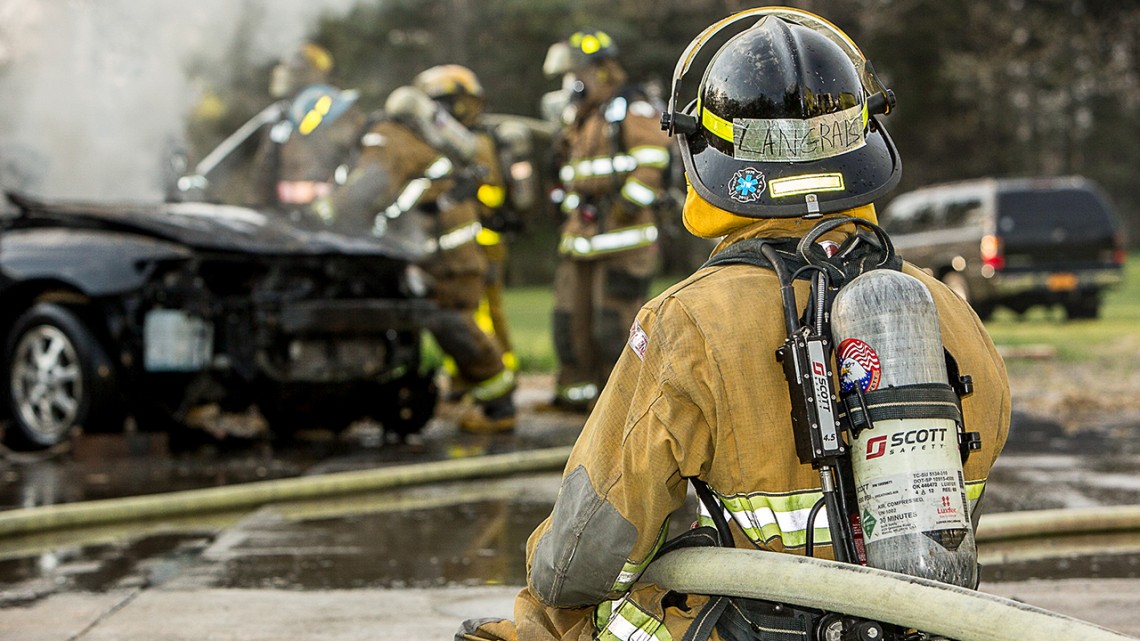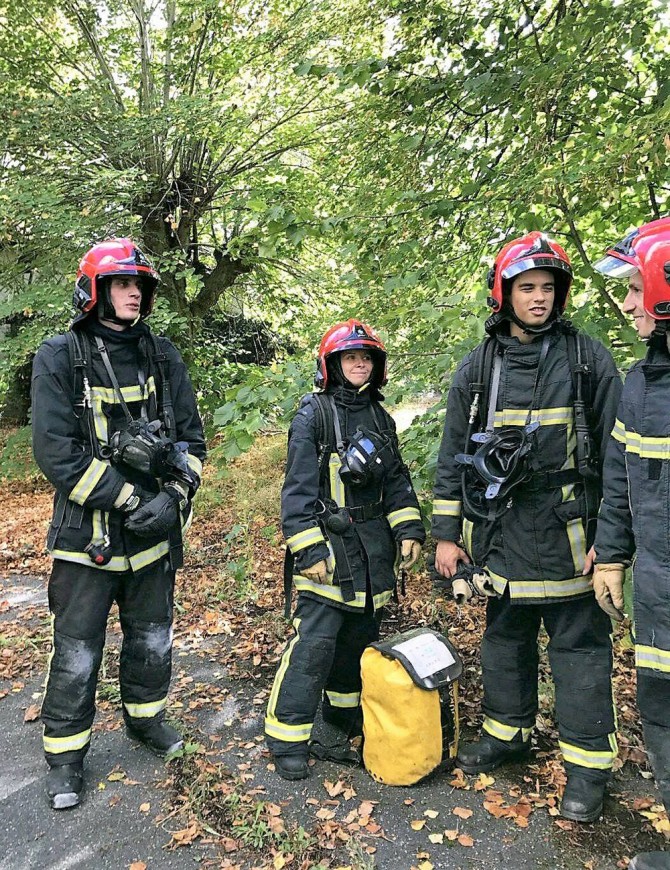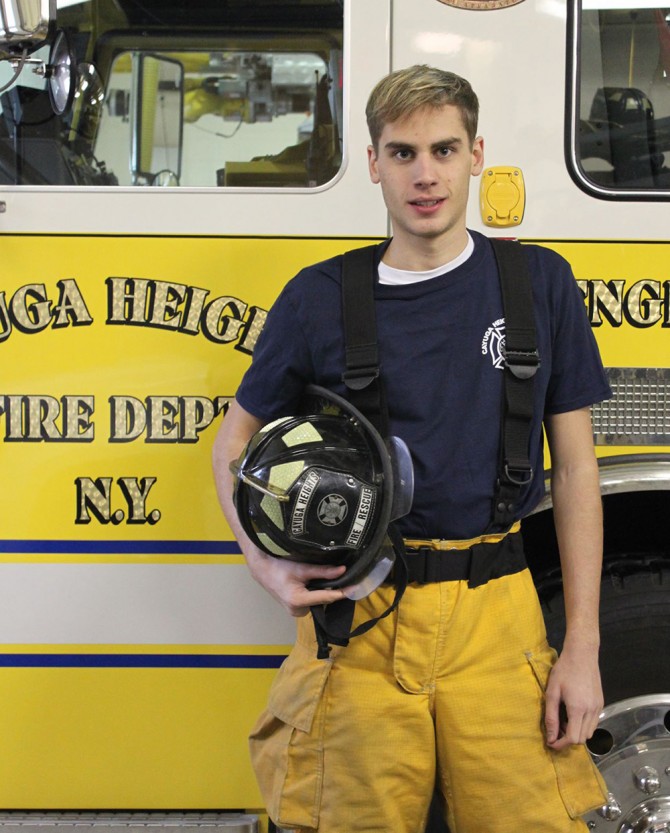
Frank Langrais, J.D. ’17, trains with the Cayuga Heights Fire Department during his time at Cornell.
Cornell Law School alumnus helps battle Notre Dame blaze
By Joe Wilensky
Law School alumnus Frank Langrais, J.D. ’17, was one of the approximately 400 firefighters who battled the April 15 fire at Notre Dame Cathedral in Paris, which caused extensive damage to the historic structure.
“When I try to remember the whole thing, I still feel like all of it was just a bad dream,” Langrais said. “This wasn’t just a devastating blaze; I saw a thousand years of history burn right before my eyes. I am sure most Parisians, and French people in general, feel the same way.”
Langrais lives in Paris and is a practicing attorney; he also works as a volunteer firefighter with the Yvelines Fire and Rescue Service, a department that responds to more than 110,000 calls per year across 42 individual fire stations. The station where Langrais volunteers is about 20 minutes from Paris, and is staffed with about 90 career and volunteer firefighters. His was one of the many departments the Paris Fire Brigade called on for assistance on the day of the Notre Dame fire.
Langrais said the fire overall was challenging for many reasons, including the height and location of the cathedral, and the extreme heat combined with the risk of the entire centuries-old structure collapsing.
This “eliminated the possibility of an effective interior attack until later in the evening,” he said, “although a firefighting robot was sent inside quite early on to try to lower the intensity of the blaze.”
Langrais is no stranger to volunteer firefighting while being occupied full time elsewhere. As an undergraduate at NYU, he volunteered as a dispatcher with the West Hamilton Beach Fire Department in Queens; when he moved to Ithaca to attend Cornell Law School, he joined the Cayuga Heights Fire Department.
Langrais said that becoming a firefighter was a childhood dream. He remembers that, when his parents drove him to preschool, “I made them slow down or even stop in front of the fire station so I could see what was going on.” Working as a volunteer firefighter was “the beginning of [being] something bigger than myself,” he said. “It ignited in me the desire to keep doing it for as long as I can.”
His volunteer work at the Cayuga Heights Fire Department “was an extraordinary experience,” he said. “I found a second family far away from home, made some of my best friends and got trained as a New York state firefighter and emergency medical technician.” Most of his fellow firefighters there also were Cornell students, he noted.
George Tamborelle, chief of the Cayuga Heights Fire Department, said he usually looks for more than a two-year commitment from volunteer members, but Langrais “impressed us during the interview process, and we took a chance.
“We did not regret the decision,” Tamborelle said. “Frank was an enthusiastic volunteer who gave as much of his time as law school would allow. We are proud that he was a part of the heroic effort to save Notre Dame.”
When Langrais headed to Paris to complete his studies, he worked part time for the Paris Fire Brigade for a year before transferring to the Yvelines department as a volunteer.
“Volunteering in that line of work is really like having a side job,” he said. “You must be willing to commit the time not only to respond to calls, but to train as much as possible so you can become the best firefighter you can be.” And while firefighting doesn’t pay much (or at all for volunteers) “the satisfaction, the sense of accomplishment and the experiences you get from that commitment make it all worth it,” he said.
And while working full time as an attorney and also volunteering as a firefighter may be unusual, Langrais sees the two roles as complementary.
“Both are different ways of helping people,” he said. “Being a firefighter taught me how to deal with stressful situations, how to deal with people who sometimes react in a way you wouldn’t expect because of fear, panic or mental illness. It compels me to stay fit even when I don’t feel like going to the gym – because the safety of my patients, colleagues, and even my own depend on it.
“On the other hand,” he said, “working as an attorney taught me how to approach complex situations, how to look at all sides of an issue and how to be a problem-solver. No need to say that those skills can prove very helpful when I leave the office to put on a uniform.”
Media Contact
Get Cornell news delivered right to your inbox.
Subscribe



